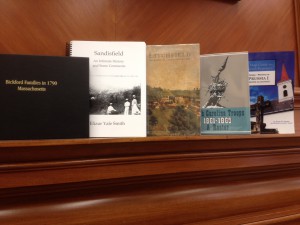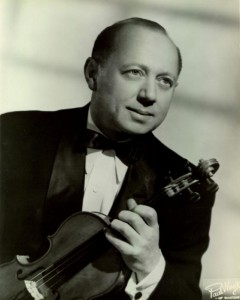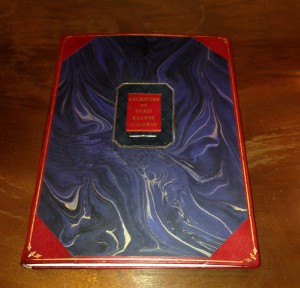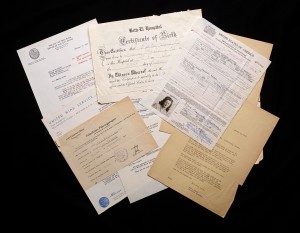 Captain George W. Lane, a Christian missionary and a Civil War veteran, first visited Malaga Island in 1906. The island, located in the New Meadows River near Phippsburg, Maine, is now an uninhabited state preserve, but in Captain Lane’s time the island was the site of a small mixed-race community of fishermen. In the summer of 1906, Captain Lane and his family rowed almost every day from their summer home on Horse Island (now Harbor Island) to Malaga. The inhabitants were poor, and there were few opportunities for education. The Lanes changed that. Captain Lane led regular church services for the residents of Malaga Island, while his wife, Lucy (Holden) Lane, and their daughters started a school for the island’s children. Continue reading The Lane School on Malaga Island
Captain George W. Lane, a Christian missionary and a Civil War veteran, first visited Malaga Island in 1906. The island, located in the New Meadows River near Phippsburg, Maine, is now an uninhabited state preserve, but in Captain Lane’s time the island was the site of a small mixed-race community of fishermen. In the summer of 1906, Captain Lane and his family rowed almost every day from their summer home on Horse Island (now Harbor Island) to Malaga. The inhabitants were poor, and there were few opportunities for education. The Lanes changed that. Captain Lane led regular church services for the residents of Malaga Island, while his wife, Lucy (Holden) Lane, and their daughters started a school for the island’s children. Continue reading The Lane School on Malaga Island
Category Archives: News
The Great Migration Study Project: a primer, Part Three
 Here is a table to help sort out where to look for your seventeenth-century ancestors in the publications associated with the Great Migration Study Project and the Early New England Families Study Project: Continue reading The Great Migration Study Project: a primer, Part Three
Here is a table to help sort out where to look for your seventeenth-century ancestors in the publications associated with the Great Migration Study Project and the Early New England Families Study Project: Continue reading The Great Migration Study Project: a primer, Part Three
Using the HathiTrust Digital Library
 I have access to every book, microfilm and manuscript in the NEHGS library, but because I don’t actually work in the building (I work from home, generally on a 3 pm to 3 am schedule), I have to rely on the staff at the library to make copies. Fortunately, with so many books available on-line these days, I have been accumulating my own mini-digital library using google, archive.org, and openlibrary.org. Each of these has limitations of one kind or another – e.g., poor quality of digitizing, page numbers that don’t match, lack of indexing, wait time to borrow, inability to print, etc. Continue reading Using the HathiTrust Digital Library
I have access to every book, microfilm and manuscript in the NEHGS library, but because I don’t actually work in the building (I work from home, generally on a 3 pm to 3 am schedule), I have to rely on the staff at the library to make copies. Fortunately, with so many books available on-line these days, I have been accumulating my own mini-digital library using google, archive.org, and openlibrary.org. Each of these has limitations of one kind or another – e.g., poor quality of digitizing, page numbers that don’t match, lack of indexing, wait time to borrow, inability to print, etc. Continue reading Using the HathiTrust Digital Library
One hundred posts on Vita Brevis
In a few days, Vita Brevis will have published one hundred blog posts. Thinking back to about a year ago, when the subject of the blog was first broached, I can say that I only thought through the mechanics of preparing and posting the first half-dozen; everything after that seemed quite remote!
What can one say about the blog, circa May 2014? After a little more than five months in existence, it has played host to thirty-four bloggers, writing on topics as disparate as RootsTech 2014, the love troubles of William Norton in 1649, the antics of the Puddingstone Club in the early twentieth century, how best to use the NEHGS catalogue from home, an historical image Smack Down! between Google and Bing, and a list of the ships in the Winthrop Fleet in 1629–30. Continue reading One hundred posts on Vita Brevis
The NEHGS library collection, 2013-2014
 In my role as Technical Services Manager for the NEHGS library, one of my responsibilities is to develop and maintain the library collection. The library has a diverse collection of print and online books, microfilm, cd-roms, and databases to help with your genealogical research.
In my role as Technical Services Manager for the NEHGS library, one of my responsibilities is to develop and maintain the library collection. The library has a diverse collection of print and online books, microfilm, cd-roms, and databases to help with your genealogical research.
Some facts about the current collection, which is searchable through our library catalog (please note, these numbers do not include the contents of our R. Stanton Avery Special Collections): Continue reading The NEHGS library collection, 2013-2014
An enhanced Early New England Families inventory
 Readers have asked for a more detailed inventory of the Early New England Families Study Project sketches. The following list includes all sketches that have been uploaded to the website: Continue reading An enhanced Early New England Families inventory
Readers have asked for a more detailed inventory of the Early New England Families Study Project sketches. The following list includes all sketches that have been uploaded to the website: Continue reading An enhanced Early New England Families inventory
The Percy Brand Papers
 The life of Percy Brand, whose papers are held by the American Jewish Historical Society–New England Archives, sounds like a plot from a movie. Born Peretz Brand in Liepaja, Latvia, in 1908, Brand began studying violin when he was ten years old. By the time he was 33, he had become concertmaster of the Latvian Symphony Orchestra in Riga. In that year, 1941, the Germans took control of the Baltic countries. Brand’s wife Sara and their children Mendel and Judith Basya were killed. Brand himself was sent Buchenwald in Germany. Continue reading The Percy Brand Papers
The life of Percy Brand, whose papers are held by the American Jewish Historical Society–New England Archives, sounds like a plot from a movie. Born Peretz Brand in Liepaja, Latvia, in 1908, Brand began studying violin when he was ten years old. By the time he was 33, he had become concertmaster of the Latvian Symphony Orchestra in Riga. In that year, 1941, the Germans took control of the Baltic countries. Brand’s wife Sara and their children Mendel and Judith Basya were killed. Brand himself was sent Buchenwald in Germany. Continue reading The Percy Brand Papers
“To tell and retell the stories of their lives”
 Every year at this time, the New England Historic Genealogical Society holds its annual meeting here in Boston. This year, the program began on Thursday with a lunch for board members, councilors, and other out-of-town guests, followed by tours of the Society’s new building at 97 Newbury Street and the new conservation laboratory at 99–101 Newbury Street. Friday was devoted to committee and other meetings for the board and council, culminating in a gala dinner where presidential historian Doris Kearns Goodwin received the Society’s Lifetime Achievement Award for American History and Biography. Ms. Goodwin was given a hand bound copy of a genealogy commissioned by the Society and compiled by Chris Child and David Allen Lambert, and she spoke to the group about “Everlasting Legacies”; her address had the epigraph “The people we love will live on so long as we pledge to tell and retell the stories of their lives.” Continue reading “To tell and retell the stories of their lives”
Every year at this time, the New England Historic Genealogical Society holds its annual meeting here in Boston. This year, the program began on Thursday with a lunch for board members, councilors, and other out-of-town guests, followed by tours of the Society’s new building at 97 Newbury Street and the new conservation laboratory at 99–101 Newbury Street. Friday was devoted to committee and other meetings for the board and council, culminating in a gala dinner where presidential historian Doris Kearns Goodwin received the Society’s Lifetime Achievement Award for American History and Biography. Ms. Goodwin was given a hand bound copy of a genealogy commissioned by the Society and compiled by Chris Child and David Allen Lambert, and she spoke to the group about “Everlasting Legacies”; her address had the epigraph “The people we love will live on so long as we pledge to tell and retell the stories of their lives.” Continue reading “To tell and retell the stories of their lives”
Useful databases at AJHS-NEA
 As the American Jewish Historical Society, New England Archives (AJHS–NEA) has only recently formed a strategic partnership with the New England Historic Genealogical Society (NEHGS), anyone interested in New England Jewish history or genealogy may want to know about several databases and collections that might be specifically useful for genealogical research. They include the following: Continue reading Useful databases at AJHS-NEA
As the American Jewish Historical Society, New England Archives (AJHS–NEA) has only recently formed a strategic partnership with the New England Historic Genealogical Society (NEHGS), anyone interested in New England Jewish history or genealogy may want to know about several databases and collections that might be specifically useful for genealogical research. They include the following: Continue reading Useful databases at AJHS-NEA
Canadian colonization companies: an introduction
One of the best things about working on the reference desk at the New England Historic Genealogical Society is that each new patron brings new challenges. Often new discoveries come with these challenges that I can use down the road to assist another patron. Such an event happened recently. (Click on the images to expand them.) Continue reading Canadian colonization companies: an introduction

